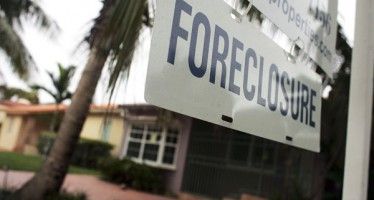Extremely costly regulation with no clear benefit? Bring it on
May 14, 2013
By Chris Reed
 This is saying a lot. But in my 23 years in California, no regulation has more clearly established the vapidity of how the state’s regulatory culture works than a new rule embraced by the San Diego Regional Water Quality Board.
This is saying a lot. But in my 23 years in California, no regulation has more clearly established the vapidity of how the state’s regulatory culture works than a new rule embraced by the San Diego Regional Water Quality Board.
My colleague at the U-T San Diego, business columnist and former editorial writer Dan McSwain, has done a superb job chronicling its insanity.
‘Faith-based policymaking’ yields idiotic policy
This is from McSwain’s Nov. 12 editorial:
“California’s latest experiment in faith-based policymaking is being unleashed today on the San Diego public, as regional water-quality officials begin hearings on new regulations that seem crafted to turn most owners of a car, house or dog into criminals within a decade or so. We wish we were exaggerating.
“Under the draft rules, ordinary homeowners may face six years in prison and fines of $100,000 a day if they are deemed serial offenders of such new crimes as allowing sprinklers to hit the pavement, washing a car in the driveway, or, conceivably, failing to pick up dog poop promptly from their own backyards, let alone the sidewalk.
“Cities throughout San Diego, south Orange and southwest Riverside counties must enforce the law, and set up 24-hour hot lines for people to report violations by their neighbors.
“The new regulations even apply to firefighters, who would be forced to somehow capture and scrub the water running down the street from fire hoses and burning buildings, although the bureaucrats promise wiggle room for ’emergency situations.’ We’re at a loss to imagine the fire that doesn’t present an emergency situation, but we’re sure California’s army of environmental lawyers will be glad to help cities figure that out in court.”
Pushing for a state cleaner than before it was colonized
This is from McSwain’s Sunday column:
“Last week, a state agency ordered dozens of local governments to spend whatever it takes to reduce the levels of bacteria, dirt and chemicals in the water that flows from storm drains into creeks and the ocean, when it rains and during dry weather.
“The ambition is noble, not to mention popular with Californians; everybody wants clean water. However, society has made such enormous gains in water quality over the last 40 years that further progress is becoming enormously expensive, with fewer prospects for helping the environment.
“As returns dwindle on our clean-water investments, the new rules imposed last week by the state’s San Diego Water Quality Board appear to be particularly unfortunate.
“Agency officials confirm that nobody knows the cost of their new stormwater rules. San Diego County estimates that just one of the standards, for animal bacteria in runoff, could cost $5.1 billion over 18 years.
“That’s the cost to local governments. It doesn’t begin to include the tab for businesses to scrub rainwater leaving parking lots with bird droppings. Or, eventually, fines to homeowners whose sprinklers hit the sidewalk, or who fail to promptly pick up after Fido, causing trace amounts of fecal bacteria to flow into gutters during a mild rainstorm.
“Meanwhile, scientists say they really don’t know whether the state’s new rules will substantially improve human health or the environment.
“At a hearing last week, an expert hired by the county showed that Mother Nature routinely violates the new standards in the Arroyo Sequit, a pristine watershed in the Santa Monica Mountains that represents San Diego before Juan Cabrillo sailed into the bay.”
Jerry Brown, live up to your rhetoric. Please.
This is beyond insane. Mother Nature isn’t clean enough for state regulators.
Jerry Brown, come on down. If you really loath stupid regulation as much as you say you do, here’s a hanging curve.
Related Articles
Detroit to renege on pensions? CA next?
June 16, 2013 By John Seiler California’s finances are overflowing today. The Legislature just passed a $96.3 billion budget, although
New influx of federal funding for CA mortgage relief
The federal government has supplied California with additional funds and time to continue its multi-year foreclosure relief program. The effort “intended to prevent
Being CalPERS means never having to say you’re sorry
Jan. 20, 2013 By Chris Reed So CalPERS is found to allow ridiculous, outrageous double-dipping by salaried employees that boosts



